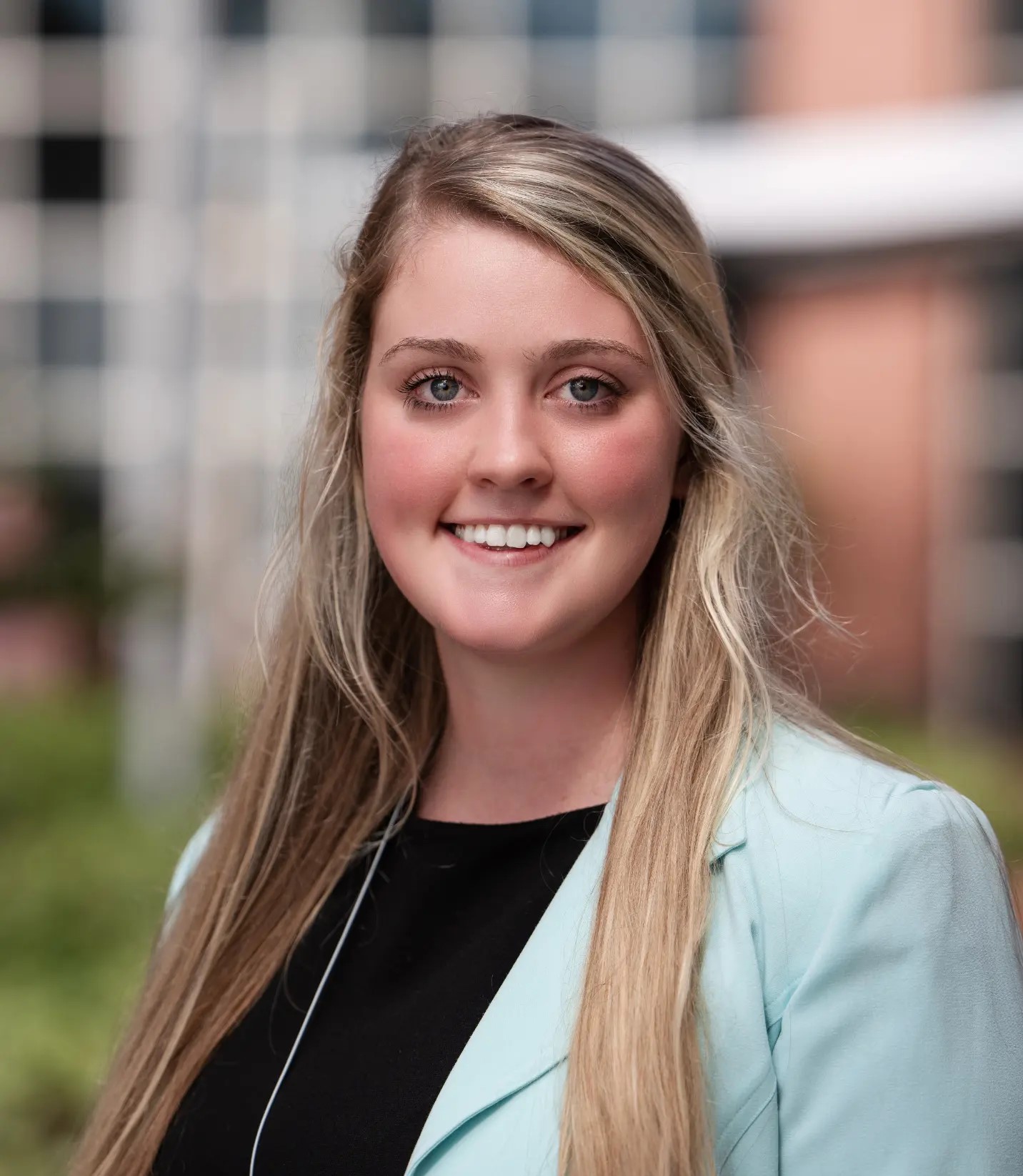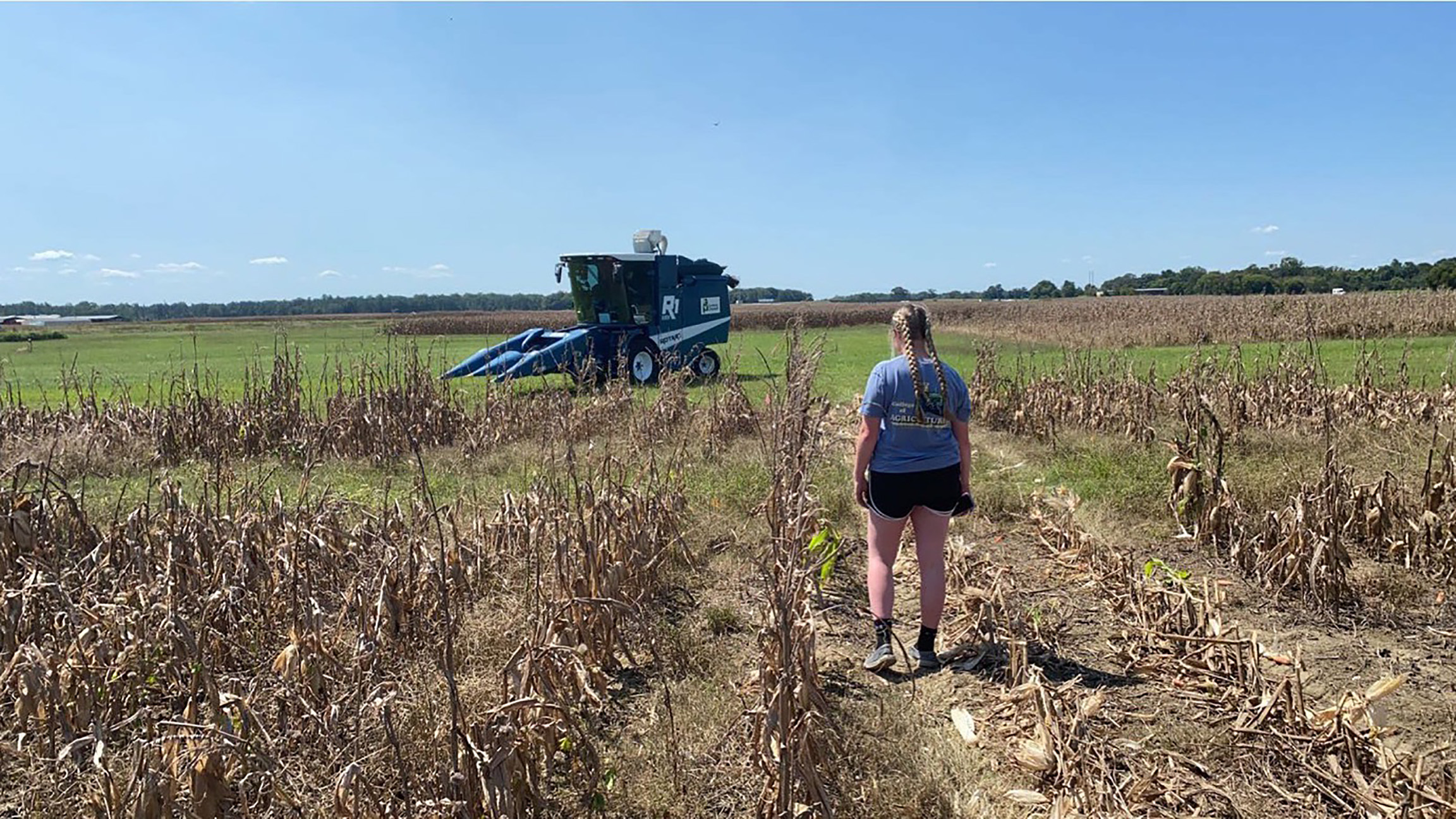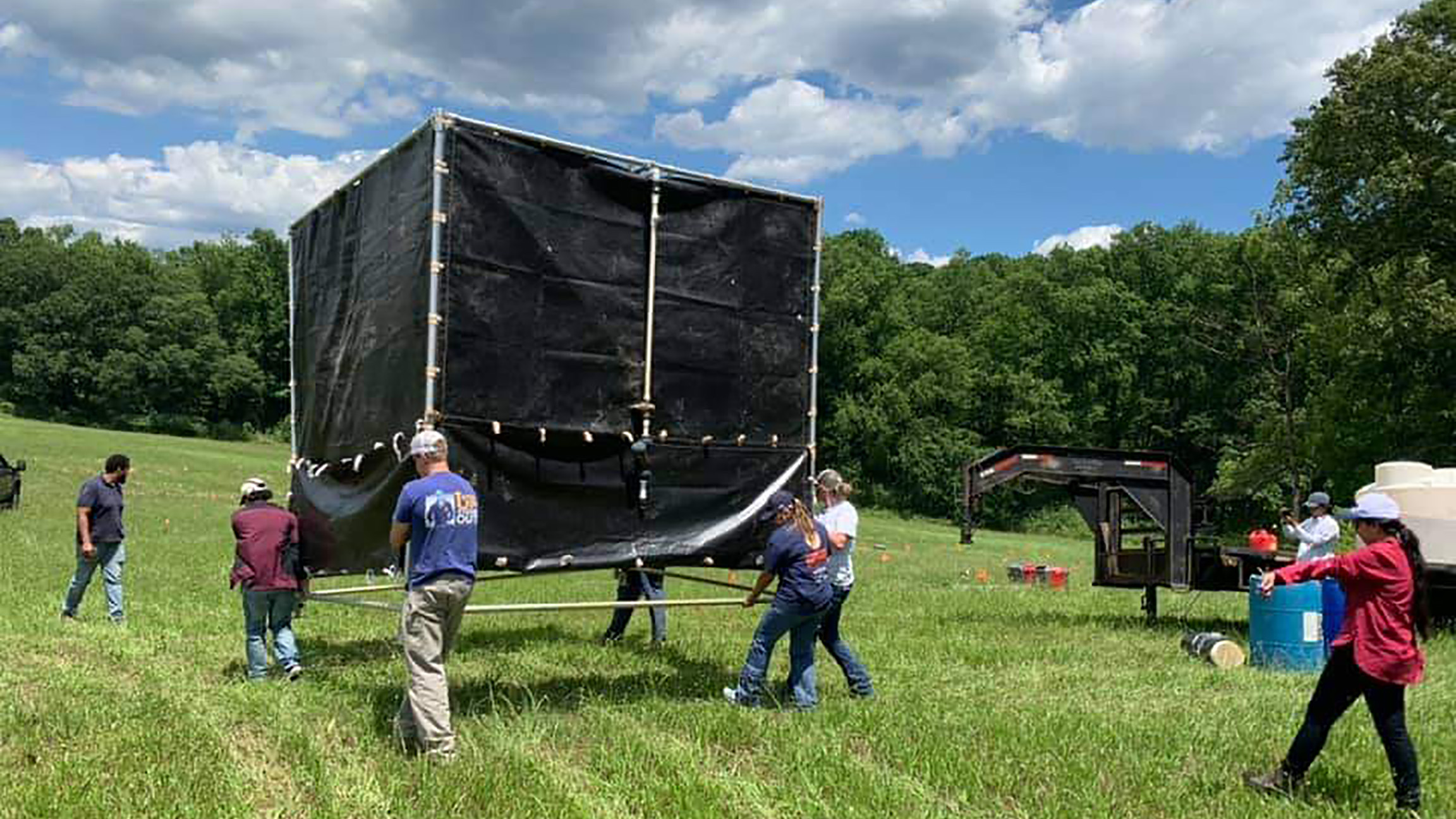WE SAT DOWN WITH AU’S ANNA POWELL, A MASTERS STUDENT IN THE COLLEGE OF AGRICULTURE DEPARTMENT OF CROP, SOIL, AND ENVIRONMENTAL SCIENCES.
Tell us about your academic background and what led you to Graduate School at Auburn University.
I completed my undergraduate degree in Environmental Management (B.S) at the University of West Florida (UWF) in Pensacola. I also minored in Geographic Information Science (GIS) and had the opportunity to complete a GIS internship at the Santa Rosa County Property Appraiser’s (SRCPA) Office. During my internship, I honed in many of my GIS skills and even got a chance to assist in drone flights! I also did a small undergraduate research project where I learned some of the basics of soil science research. I decided I wanted to go to graduate school and study agriculture and soil science to diversify my skills further and use those skills to be able to serve others. I visited Auburn and then I knew there was no way I could go anywhere else for grad school. The folks here have made me feel at home for the last 2.5 years and really feel a part of the Auburn Family.

Anna Powell of Auburn University’s College of Agriculture.
Describe your research interests.
The intersection of agriculture and environmental sciences has really been my focus during my academic career. I believe we can find solutions for farmers and producers to maintain or improve their profits in a way that is also sustainable to the environment. Developing best management practices that producers can practically implement is really interesting to me!

Final Corn Harvest with the Almaco R1 Combine at E.V. Smith Research Center in Shorter, AL. Photo Credit: Anna Powell
Describe your current and upcoming research activities.
Currently, I am working on determining the environmental and agronomic effects of flue-gas desulfurization gypsum amended poultry litter. Alabama has a very large poultry industry and produces around 2 million tons of litter from broiler production alone every year. While poultry litter is an excellent fertilizer source, litter can be a source of excess nutrients in the environment. Ammonia volatilization and emissions from litter are a problem during production as it poses not only an environmental threat, but health threats to the birds and poultry house workers. Additionally, once litter is removed from the poultry houses, it is often disposed onto nearby hayfield and pasturelands where runoff can transport those excess nutrients to nearby waterways. Excess nutrients, especially phosphorus, can trigger algae growth and endanger aquatic ecosystems. In recent years, studies have explored the agronomic and environmental uses of flue gas desulfurization gypsum (FGDG) as a poultry litter bedding to reduced ammonia losses and as a litter or soil amendment to reduce phosphorus runoff losses. My research explored how using FGDG as a poultry litter bedding would affect the nutrient release and runoff. I conducted a rainfall simulation study on bermudagrass hayfield at the Piedmont Research Unit in Camp Hill, AL and captured runoff samples from plots fertilized with gypsum bedded litter, conventionally bedded litter, and litter with commercial products used to reduce ammonia losses. Additionally, I looked at how gypsum amended litters affect corn yield and nutrient uptake for the last two years in North Alabama at the Tennessee Valley Research and Extension Center and in Central Alabama at E.V. Smith Research Center.

The Animal Waste and Nutrient Management team moving the Rainfall Simulator to the first plot at Piedmont Research Unit in Camp Hill, AL. Photo Credit: Anna Powell.
In your academic journey so far, what is the best advice you’ve been given?
Learning is a life-long process, and we can learn something from everyone we meet. Never let mistakes or lack of knowledge hold you back from trying something new.
What are your plans for the future?
I have completed the data collection for my master’s project, and I plan to defend in the early spring. I will start my job new job with Alabama Power as an Environmental Specialist working on transmission line and substation construction planning for implementing erosion best management practices, submitting permit requests to ADEM, and conducting site inspections. I hope to help my team also by getting my drone pilot license to help them improve inspection activities in the future!

Litter Treatments in their storage containers ready for application at E.V. Smith Research Center in Shorter, AL. Photo Credit: Anna Powell
